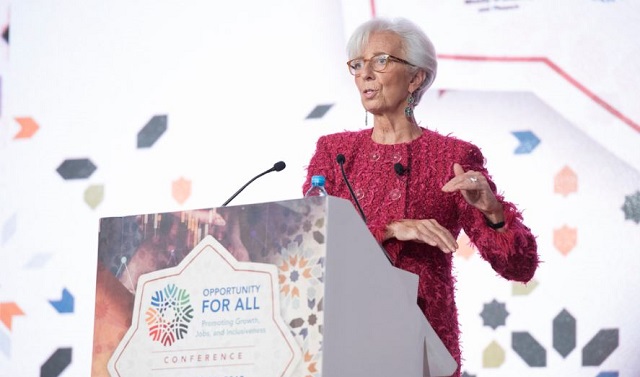
Washington, US | THE INDEPENDENT | The International Monetary Fund is seeking a leading role in rallying the world’s central banks to get ahead of digital money and crypto currencies in the global financial system.
The IMF Managing Director, Christine Lagarde, wants authorities to “distinguish between real threats and needless fears” about crypto currencies like Bitcoin.
A digital currency is a digital representation of value that can be digitally traded and function as a medium of exchange, but does not have legal tender status in any jurisdiction.
There are as many as 1,500 different types of digital currencies in circulation around the world, valued at an estimated 300 billion dollars, that is about 4.8 per cent of the world’s foreign exchange reserves, and twelve times Uganda’s GDP.
Bitcoin, first released in 2009, is the oldest and most valuable crypto currency by far, but dozens of new currencies are being created every week.
Writing in a blog post, Lagarde says “policymakers should keep an open mind and work toward an even-handed regulatory framework that minimizes risks while allowing the creative process to bear fruit”.
Lagarde’s remarks, made ahead of the IMF’s annual spring meeting in Washington this week, come as the world’s financial regulators grapple with how best to handle digital money that has been designed to trade without the oversight of a central monetary authority.
According to Lagarde, the world is “looking at something which is developing fast, and which is highly volatile, with benefits and downsides”.
She proposes that the illicit use of digital currency plus abuse of consumers’ financial illiteracy must be guarded against, as well as innovations from the use of digital mechanisms need to be explored and encouraged.
Lagarde says what is key is having a framework that protects, and not stifles innovation.
The IMF chief notes that if exploited crypto currencies can “enable fast and inexpensive financial transactions” and their underlying technology – distributed ledger technology (DLT) – could improve the efficiency of financial markets and maintain secure storage of important records.
Lagarde cautions that there is “a need to remain alert and vigilant” and act quickly to close the knowledge gaps that inhibit the effective monitoring of crypto-assets.
She says there should be systemic risk assessment and timely policy responses, as well as measures to protect consumers, investors, and market integrity.
Digital money is slowly but surely taking root in Uganda.
In February 2017, the central bank issued a statement warning the general public that whoever wishes to invest their hard earned savings in crypto currency forms is taking a risk in the financial space where there is neither investor protection nor regulatory purview.
Some of the digital currencies operational in Uganda include One-coin, Bitcoin, Ripple, Peercoin, Namecoin, Dogecoin, Litecoin, Bytecoin, Primecoin, and Blackcoin.
The Bank of Uganda strongly encouraged members of the public to do business transactions with only licensed financial institutions.
 The Independent Uganda: You get the Truth we Pay the Price
The Independent Uganda: You get the Truth we Pay the Price





